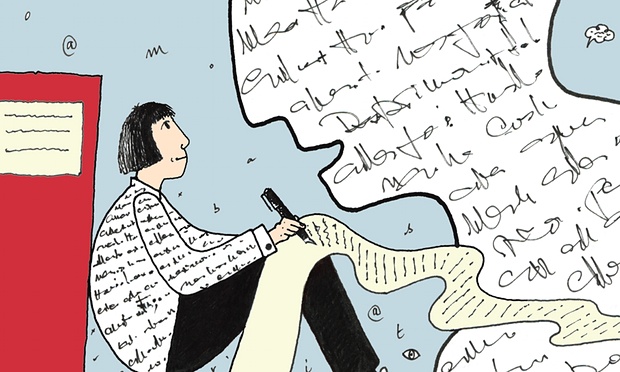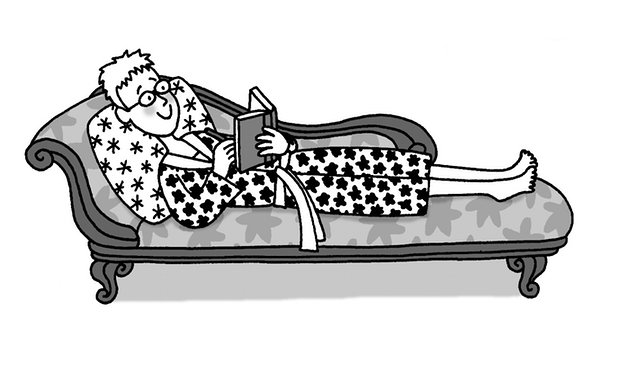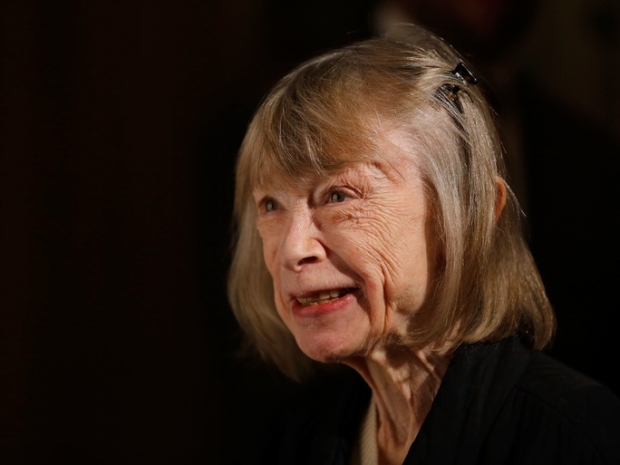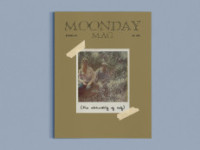Winning writing competitions
firstwriter.com – Saturday October 22, 2005

If you're interested in entering writing competitions, then, like most entrants, you probably know how hard it is to even get a mention, let alone win. Yet some people manage to win competition after competition – so how do they do it? As the deadline for our Fourth International Poetry Competition draws near we took time out to talk to the winner of our First International Short Story Contest, Alexandra Fox (who has won no fewer than seventeen competitions in less than two years), to try and find out what her magic touch is!
If you're inspired by Alexandra's story you'll be pleased to know that the deadline for our Fourth International Poetry Competition has been postponed to allow for last minute entries, meaning you still have till November 1, 2005, to enter your poems at www.firstwriter.com/competitions/poetry_competition.shtml for the chance to win £500 (that's over $750). Fiction writers can also enter our Second International Short Story Contest atwww.firstwriter.com/competitions/short_story_contest.
Alexandra is a mother and grandmother from a village near Northampton, England. She writes with Alex Keegan's online Boot Camp and finds (as do her family) that writing has taken over her life.
fw: Congratulations on your success in our First International Short Story Contest, Alexandra, and thanks for taking the time to talk to us. Is writing something you've always done, or something you've come to relatively recently?
AF: I wrote my first story in January 2004 – a flash – and was unbelievably excited by the experience. Then I woke up the next morning with a full story in my head and had to get to the computer immediately and put it down. Both of those stories won first prizes (with some rewriting), and I’d love to get that unaware spontaneity back, but with the added craft I’ve learned since.
fw: Wow, that's a really rapid success! What was it that attracted you to writing?
AF: I started by accident and rapidly found it addictive, so much so that I haven’t wanted to do anything else since, and I would feel uncomfortable going a day without putting words down on paper. I’m inspired quite often by odd newspaper pictures or articles, by overheard conversations, by seeing something that tugs an unexpected cord inside me, so I have to find out why it matters. Learning to see, to really see like a writer is a new skill in itself. I think my aim is for what leaves my head to be conveyed perfectly into the reader’s head. That is a question of craft, of skill, of writing a great many words.
fw: It sounds like you get a lot personally out of writing – but what motivated you to share your writing with others?
AF: I write with an online group – Alex Keegan’s Boot Camp – which has a strong ethos: write, crit, rewrite, submit. We drive each other on to count submissions, hits, even rejections. Every time you do any of these, you learn. At first I submitted to ezines and competitions, but it was hit and miss because I didn’t know the value of a particular piece of work, or the relative difficulty of the venues.
fw: So you found it difficult to get good information on potential markets?
AF: There are very many contest databases around on the internet, but some are rarely updated. It can be difficult to find competitions by closing date, for example, if you can only see them listed alphabetically or in random order.
fw: So how did firstwriter.com help you find suitable competitions?
AF: I like to see the competition announcements dropping in by email. Sometimes they can give an unconscious jolt to a story you’re thinking of writing. The site itself is convenient because the competitions are listed in date order. When it gets to about the 22nd of the month I always check for competitions that are closing so I’m in time to post stories off. The field searches can be very useful if you have a story of a particular length or genre. I have sent in competition details a few times and found the process easy; the firstwriter.com staff have been quick to help by correcting errors.
fw: Once you'd received notifications of competitions, or searched for them in our database, how did you choose which ones to enter?
AF: I write literary short stories rather than genre. I like to write 3,000 words or longer, but I have occasional shorter pieces. The word counts limit the competitions quite precisely. I like to enter competitions that have websites so I can look at previous winners and see who the judges are. I would be unlikely to enter a competition where a fee was sent to an unknown person at a postal address with no other information given. I rarely enter US or Canadian contests unless it is possible to enter by email and with PayPal or credit card payments, purely because of currency problems.
fw: Would the theme of the competition play a part in your selection? Do you find you write stories to fit competitions, or do you find competitions that fit your stories?
AF: I hope I don’t write for specific competitions. Sometimes the theme for a competition stirs a story into life, but generally I would look for a competition to fit a story rather than the other way round.
fw: So how would you select which of your stories was right to submit for each competition?
AF: It’s useful to have a look at previous winning stories, or at the type of literature the judge writes. Some competitions are more likely to be won by heavy literary stories, or ones about women’s issues, or by a romance (but I have been very surprised at times by success with an unexpected story). I tend to send in more than one story if I can afford it.
fw: To what extent do you think writing for competitions differs from writing for other markets?
AF: It doesn’t. I write a story without knowing whether it will be sent to a competition or a magazine. If you start listening to people who tell you to start with a big bang or end with a twist you won’t write a story with any heart. I believe firmly that if the story mattered to you, it is more likely to matter to the reader.
fw: Do you always stick with the same kind of contests, or do you enter a variety?
AF: I enter competitions for literary short stories, because that’s what I write. I’ve won prizes with a couple of odd nonfiction pieces and one quirky horror story.
fw: It sounds like you've managed to find success in a variety of competitions. How long was it before you started finding that success?
AF: I started writing in January 2004 and won my first competition in March that year. I’ve won first prizes in seventeen short story competitions now (including yours), and a number of other placings. I’m particularly pleased by a couple of runner-up prizes in major competitions: the Asham Award and the Bridport Prize. Some of the placings have been very unexpected.
fw: What do you think's been the key to your success? What would be your biggest tip for other writers?
AF: Oh lord. I wish I knew. If I knew the key I wouldn’t have an enormous pile of rejection slips. I’d say keep trying. If you yourself feel a particular story has enough quality to be placed, don’t give up. Send it out to another competition, and another. Reread it with the benefit of distance, and tweak if necessary. Remember that your story often has to go through a panel of readers first, and will not otherwise ever reach the judge. Let the opening of the story invite and tilt those readers into wanting to carry on into the story.
fw: What next? More competitions, or do you have other plans for your writing?
AF: There’s nothing like getting a runner-up place in a good competition to encourage you to carry on trying for the real prizes. I’m lucky enough to study with an excellent tutor, Alex Keegan, who would tell anyone who asks that I’m still a beginner and have a lot to learn. I agree – there are glaring faults in my work and I’m too old and stubborn to change easily. I’d like to write a novel, but I don’t dare start in case the first word is wrong. I’d like to put together a collection of short stories, but I know that if it contained work I’m writing at the moment I’d look back in a few years and wish I’d waited. Until I’m ready for either of those, I’ll carry on entering competitions. And thank you, firstwriter.com, for making it a little easier.
fw: And thank you for sharing your story with us!
To enter our poetry or fiction competitions, or search over 150 competitions run by other organisations, click here. Alexandra's winning story can be read online at www.firstwriter.com/competitions/poetry_competition/previous_winners/firststory.shtml.




 Award-Winning Novelist Cecilia Galante Shares The Realities Of Writing As A Profession
Award-Winning Novelist Cecilia Galante Shares The Realities Of Writing As A Profession Writing contest etiquette
Writing contest etiquette My writing competition success - An interview with writer, Jerry Ryan
My writing competition success - An interview with writer, Jerry Ryan Thematic writing: a method
Thematic writing: a method Pete Kalu’s top tips for writing non-cliched multicultural characters
Pete Kalu’s top tips for writing non-cliched multicultural characters Struggling as an author? Stop writing only what you want to write
Struggling as an author? Stop writing only what you want to write My writing competition success - An interview with writer, Angela Gloker
My writing competition success - An interview with writer, Angela Gloker My writing day: Jacqueline Wilson
My writing day: Jacqueline Wilson 8 things I wish I'd known before writing my first novel
8 things I wish I'd known before writing my first novel 11 Writing Tips From Joan Didion, Because She Knows A Thing Or Two About It
11 Writing Tips From Joan Didion, Because She Knows A Thing Or Two About It George Saunders on how a slaughterhouse and some obscene poems shaped his writing
George Saunders on how a slaughterhouse and some obscene poems shaped his writing How I write: Screenwriter Kathryn Burnett on why a writing career is a marathon not a sprint
How I write: Screenwriter Kathryn Burnett on why a writing career is a marathon not a sprint Val McDermid, Michael Robotham, J.P. Pomare on writing crime
Val McDermid, Michael Robotham, J.P. Pomare on writing crime 3 Simple Tips on Writing the First 5 Pages of Your Sci-Fi/Fantasy Novel
3 Simple Tips on Writing the First 5 Pages of Your Sci-Fi/Fantasy Novel Want to write a novel? National Novel Writing Month celebrates 25th anniversary
Want to write a novel? National Novel Writing Month celebrates 25th anniversary What we learned about... non-fiction writing
What we learned about... non-fiction writing How Mindfulness Can Transform Your Writing Life
How Mindfulness Can Transform Your Writing Life New Literary Agent Listing: Ed Wood
New Literary Agent Listing: Ed Wood New Publisher Listing: Broken Sleep Books
New Publisher Listing: Broken Sleep Books New Magazine Listing: Moonday Mag
New Magazine Listing: Moonday Mag Little Door Books: the Scottish independent publisher looks to new horizons
Little Door Books: the Scottish independent publisher looks to new horizons US fiction writing school launches US$100k prize
US fiction writing school launches US$100k prize Richard Benson to edit new literary magazine for working-class writers
Richard Benson to edit new literary magazine for working-class writers New book prize to award aspiring writer £75,000 for first three pages of novel
New book prize to award aspiring writer £75,000 for first three pages of novel New Literary Agent Listing: Cole Hildebrand
New Literary Agent Listing: Cole Hildebrand New independent press to focus on male writers
New independent press to focus on male writers Novelist Keshava Guha to become Aevitas UK's first literary agent in India
Novelist Keshava Guha to become Aevitas UK's first literary agent in India New Literary Agent Listing: Lily Dolin
New Literary Agent Listing: Lily Dolin Top literary agent and businessman Esmond Harmsworth dies at 57
Top literary agent and businessman Esmond Harmsworth dies at 57 New £10k writing prize launched at Sherborne Travel Writing Festival
New £10k writing prize launched at Sherborne Travel Writing Festival 9 Companies Hiring Remote Freelance Writers In 2025
9 Companies Hiring Remote Freelance Writers In 2025
